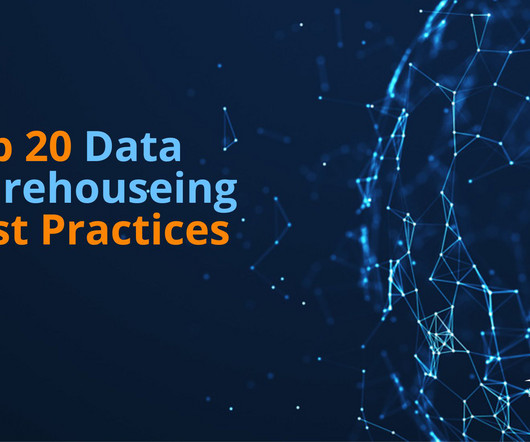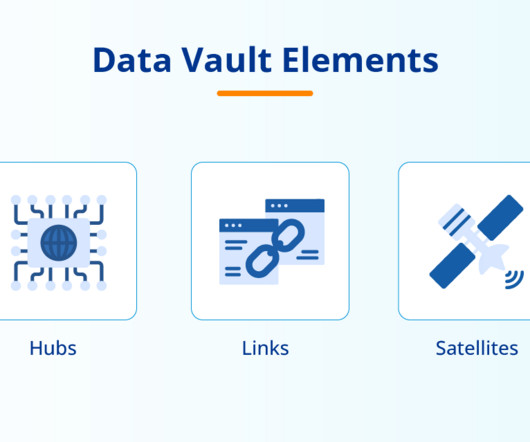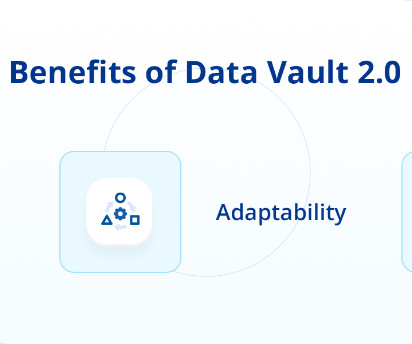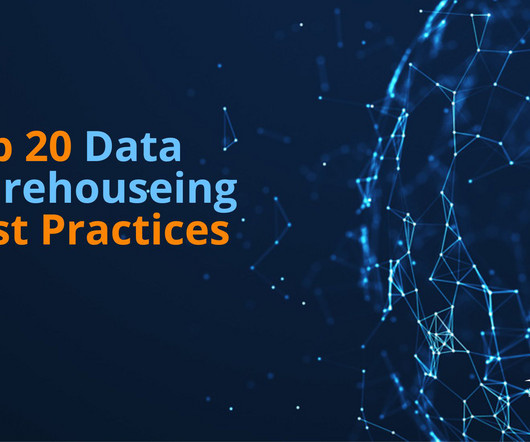Top 20 Data Warehouse Best Practices in 2024
Astera
FEBRUARY 28, 2024
In other words, a data warehouse is organized around specific topics or domains, such as customers, products, or sales; it integrates data from different sources and formats, and tracks changes in data over time. Encryption, data masking, authentication, authorization, and auditing are your arsenal.













Let's personalize your content